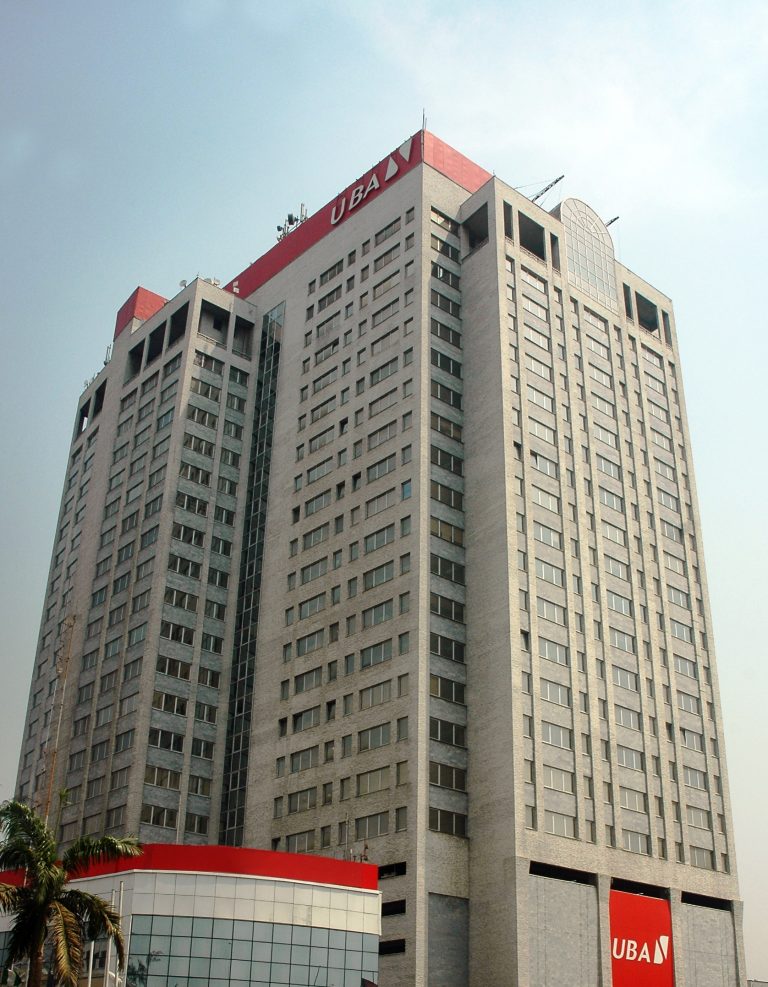Ahead of the March 31, 2018 regulatory deadline for the filing of its full-year result, the board of United Bank for Africa, on Friday presented its audited score-card for the year ended December 31, 2017, indicating that earnings growth was faster than profit, despite the relatively robust 46.7% growth in “other income,” just as the directors recommended 65 kobo dividend per share from its N2.22 Earnings Per Share (EPS).
Details of the result showed that gross earnings rose 20.3% to N461.557bn from N383.647bn in the corresponding full year of 2016. Of this, the Nigerian business contributed N314.5bn, representing 68.13%, down from N268.796bn or 70.06% recorded in the comparable period of 2016; while operations across its 18 African countries fetched N150.742bn or 32.65%, as against N121.941bn or 31.78%; with “the rest of the world” adding the remaining 2.72%, from N9.794bn, or 2.55%.
By business segments, the bulk of earnings for the year came from the retail and commercial side, which contributed N260.185bn or 56.37%, compared to N227.572bn; followed by corporate clients’ N140.594bn or 30.46%, from N116.625bn or 30.39%; and treasury and financial markets, N60.778bn or 13.16%, up from N39.45bn, which represented or 1028% of total.
Interest income climbed from N263.97bn to N325.657bn, significantly driven by the N159.215bn from term loans, from N126.129bn; followed by income from investment in treasury bills of N67.599bn, from N45.755bn; and bonds, N47.972bn, compared to N43.063bn. Interest expense rose to N118.025bn with interest paid on customer deposits at N77.972bn, up from N65.639bn; N98.77bn, a 19.4% increase. This resulted in net interest income of N207.632bn from N165.2bn.
Fee and commission income increased 13.3% from N73.199bn to N82.937bn; driven by a combination of N20.92bn from electronic banking income, which fell from N30.466bn; transactions income of N13.399bn, which improved from N7.729bn; and the N13.227bn commissions on transactional services, from N8.568bn; just as credit-related fees and commission improved from N12.492bn from N8.703bn.
Fee and commission expense climbed 21.3% to N16.967bn from N13.988bn, as electronic banking expenses gulped the lion’s share of N15.014bn, from N13.09bn; followed by N1.796bn from trade related expenses, which was a significant increase from N277m in 2016.
Impairment loss on loans and receivables stood at N32.895bn from N27.683bn, representing a rise by 18.9%, driven mainly by the N24.141bn impairment charge on loans and advances to customers and N9.544bn write-off on loans and receivables from N2.34bn; less the N6.31bn recovered from loans written-off, up from N2.215bn.
Net interest income after impairment charges rose from N137.517bn from N174.737bn, representing a 27% growth within the review period.
Net trading and foreign exchange income was 11.9% better at N49.063bn from N43.82bn, the lion’s share of which was the N40.166bn foreign exchange trading income from N14.206bn; while fixed income securities contributed N10.469bn.
Other operating income increased to N3.9bn from N2.658bn, with dividend income of N2.449bn, up from N1.803bn, while income from cash handling soared to N1.047bn from N462m; as profit before tax rose 16.1% to N105.264bn from N90.642bn.
Net profit rose to N78.59bn, just 8.75% above the N72.264bn reported a year earlier; from which the directors have proposed the dividend payable on April 23 (same day as the annual general meeting) to shareholders whose names appear in the register of members on April 9, while register closes on April 10, 2018.
A breakdown according to geographical regions showed that N41.099bn or 52.29% of UBA’s net profit came from its Nigerian operations, while the rest of Africa pooled 42.98%; and the U.S Business- N5.324bn or 6.77%.
By business segments, the biggest share of the profit came however from the corporate business at N39.272bn and N9.379bn tax that left a net of N29.893bn or 38.03%; down from N43.46bn and N5.774bn tax, resulting in net profit of N37.686bn or 52.15% of total in 2016; followed by the N37.047bn PBT and N8.709bn tax that left a PAT of N28.338bn or 36.05% from retail and commercial business, up from N29.442bn and N9.39bn tax leaving N20.052bn PAT or 27.74%; while treasury and financial markets fetched N28.945bn PBT, contributed N8.586bn to tax, resulting in net profit of N20.359bn or 25.9%; which was better than the N17.74bn PBT, N3.214bn tax and N14.526bn or 20.1%. This shows that with a Net Profit Margin of 33.49%, the group’s treasury and financial markets business remains the most profitable (having successfully converted 33.49 kobo of every Naira earned to profit for the period), down from 36.82% in 2016; followed by corporate business with 21.26%, as against 32.31% a year earlier; trailed from afar by retail and commercial at 10.89%, an improvement from the prior year’s 6.38%.
Meanwhile, on the balance sheet, total loans and advances rose to N1.671tr, out of which N1.167tr or 69.87% was from Nigeria; down from N1.092tr or 71.48% in the comparative period of 2016; followed by N486.637bn or 29.11% to “the rest of Africa,” up from N437.456bn, which however represented a decline from the 28.62% reported in prior year. Deposits to customers and banks for the period stood at N2.867tr, with Nigeria accounting for N1.913tr or 66.71%, up from N1.776tr or 68.47%; ahead of the N1.072tr, or 37.39% from the African business, compared to 37.61%.
Trending Today
Menu








